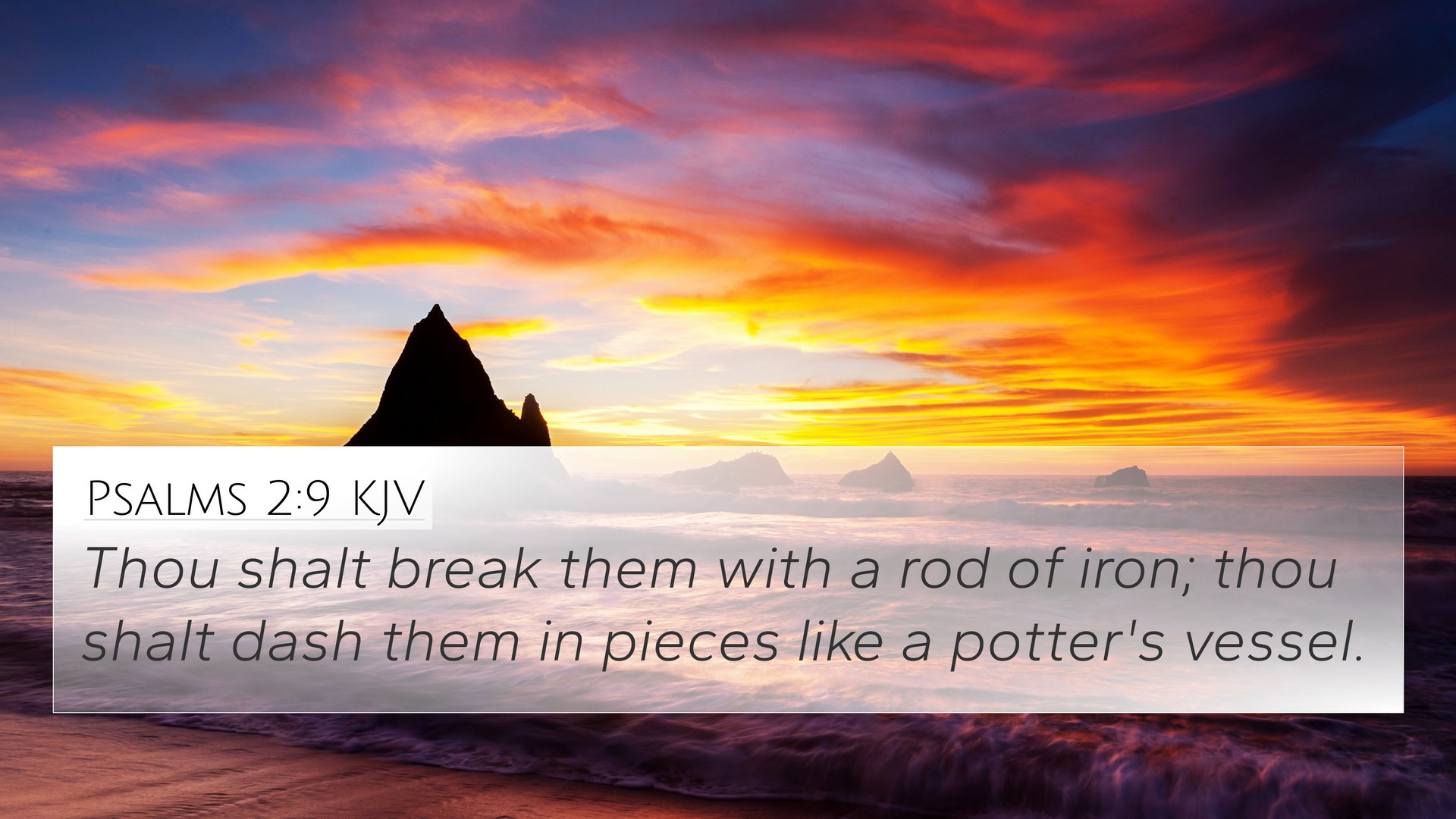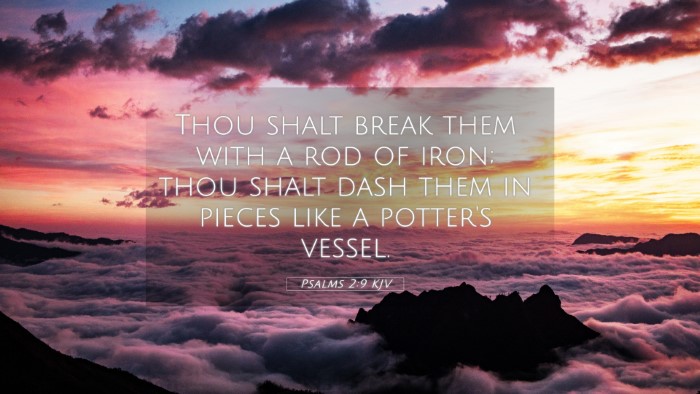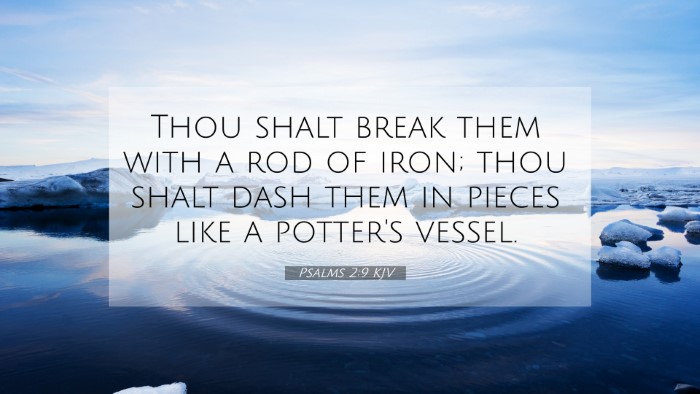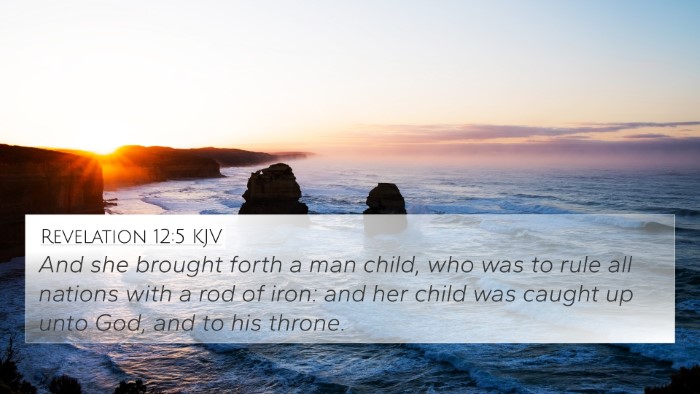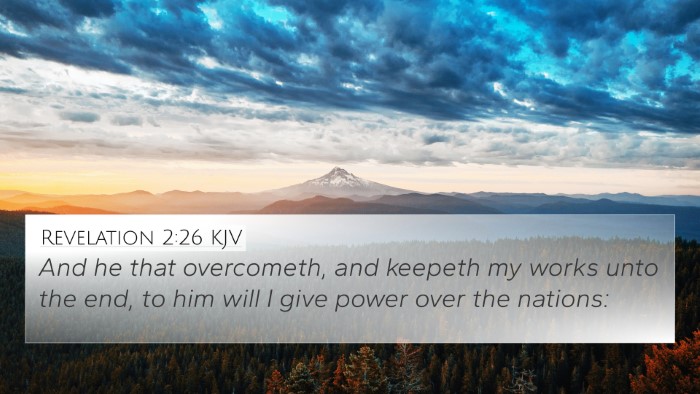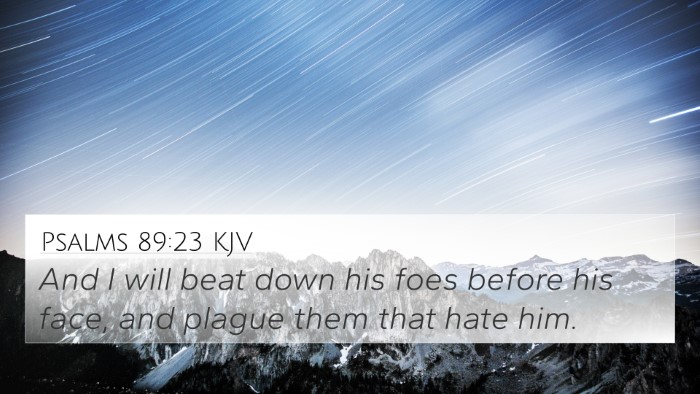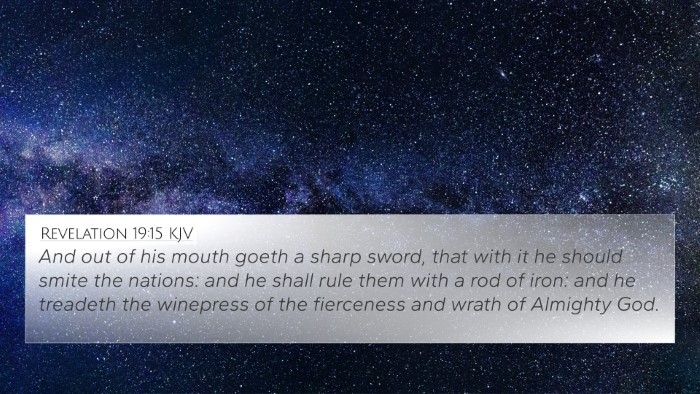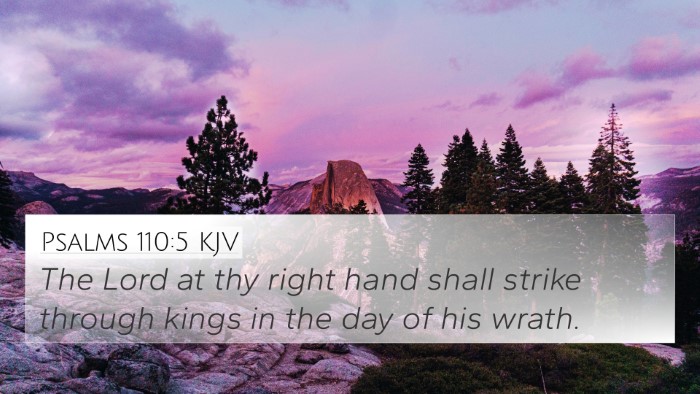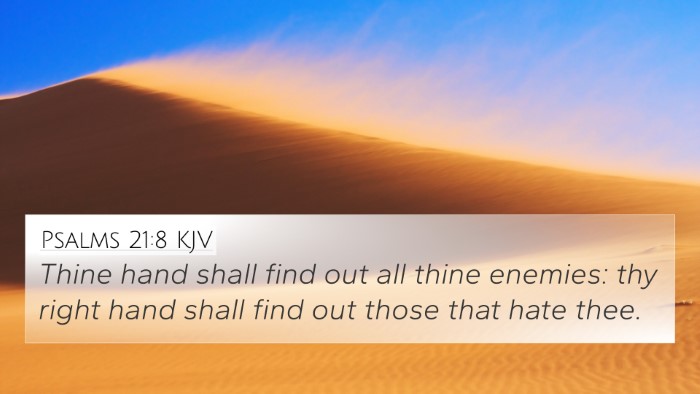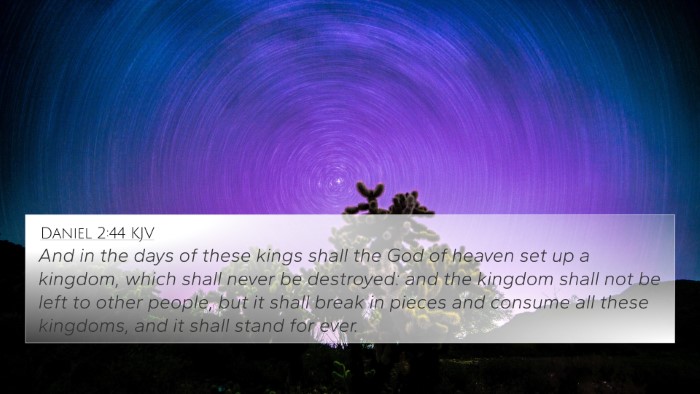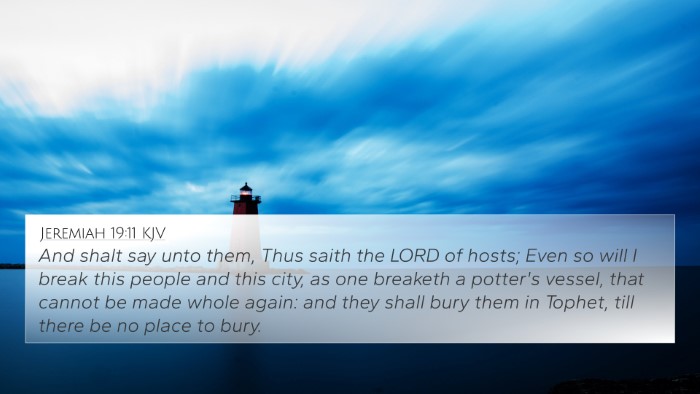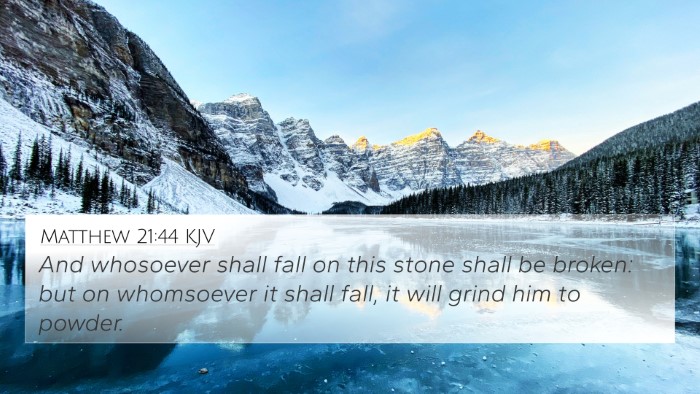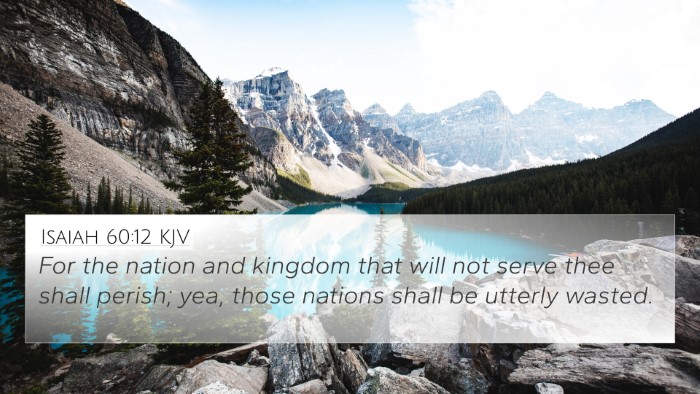Psalms 2:9 - Understanding Through Commentaries
Psalms 2:9 reads: "You shall break them with a rod of iron; you shall dash them in pieces like a potter's vessel." This verse is rich in meaning and conveys profound themes of divine authority, judgment, and the ultimate sovereignty of God. Below, we summarize insights from public domain commentaries by Matthew Henry, Albert Barnes, and Adam Clarke to provide a comprehensive interpretation of this scripture.
Context and Overview
The second Psalm speaks to the futility of rebellion against God and His anointed. It contrasts the rage of nations and peoples against the Lord with His planned establishment of His kingdom through the Messiah. Verse 9 specifically highlights the authority with which the Messiah will govern the nations and execute divine judgment.
Commentary Insights
-
Matthew Henry:
Henry emphasizes that the "rod of iron" symbolizes the strength and authority that God grants to His chosen king. He interprets this as a reference to Christ's ability to rule with justice over the rebellious and ungodly nations. The phrase "dash them in pieces" indicates a total obliteration of opposition, reminiscent of a potter shattering flawed vessels, signifying God’s decisive judgment against evil.
-
Albert Barnes:
Barnes notes that this verse speaks of the Messiah's power and the inevitable downfall of opposing forces. He points out that the imagery of a "rod of iron" expresses both strength and justice, illustrating the combined power and fairness of Christ's reign. Barnes highlights the certainty of this outcome, stating that earthly powers are ultimately weak against divine authority.
-
Adam Clarke:
Clarke provides a linguistic analysis of the terms used, particularly "rod of iron." He explains that a rod is used for correction and direction, suggesting that Christ's governance will not only be authoritative but will also strive to lead towards righteousness. His interpretation aligns with the concept of divine justice, reinforcing that opposition to God leads to inevitable destruction.
Thematic Connections
Psalms 2:9 connects to various themes within Scripture, showcasing God's unwavering authority and the ultimate fate of those who oppose Him. The following points outline thematic Bible verse connections related to this verse:
- Divine Judgment: Revelation 2:27, "And he shall rule them with a rod of iron; as the vessels of a potter shall they be broken to shivers." This New Testament affirmation parallels the authority depicted in Psalms 2:9.
- God's Sovereignty: Isaiah 45:9 emphasizes the futility of opposing God's plans, affirming His sovereignty in all matters.
- The Messiah's Rule: Hebrews 1:8 refers to the Son's authority over creation, connecting to the divine kingship described in Psalms 2.
- Righteousness vs. Evil: Romans 12:19, where God promises vengeance, echoes the judgment portrayed in Psalms 2:9.
- God as the Potter: Jeremiah 18:4 illustrates God’s authority in shaping nations, reminiscent of the potter and vessel analogy in Psalms 2:9.
- Christ’s Authority in the Gospels: Matthew 28:18, "All authority in heaven and on earth has been given to me," supports the theme of divine dominion.
- Final Judgment: 2 Thessalonians 1:7-9 speaks of Christ being revealed in His power to execute judgment, paralleling the theme found in Psalms 2:9.
- Hope for Believers: 1 Peter 5:10 reassures believers of ultimate restoration after Christ’s victorious authority is established.
- Old Testament Prophecies: Micah 5:15 highlights God’s judgment on nations surrounding Israel and relates to the judgment of nations described in Psalms 2:9.
- Worldly Rebellion: Acts 4:25-26, referencing how nations rage against God's Messiah, connects directly with the themes of opposition found in Psalms 2.
Practical Application
Understanding Ps 2:9 encourages reflection on God's ultimate authority and the certainty of His justice. Believers are called to find solace in the truth that God will triumph over evil, assuring them that while earthly powers may rage, they are under God's sovereign oversight.
Conclusion
By employing cross-referencing Bible tools, readers can delve deeper into the rich meanings of Psalms 2:9. Reflecting on its themes and connections enhances comprehension, strengthens faith, and underlines the importance of submitting to God's authority. For those who seek a comprehensive Bible cross-reference guide, examining related scriptures can bring clarity to one's understanding.
